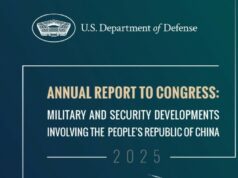The protests were triggered by a controversial social media ban, but the anger had long been brewing in what he called a ‘pressure cooker society,’ fuelled by corruption, impunity, and an apathetic political elite disconnected from the aspirations of Nepal’s tech-savvy youth.
Economically, the crisis has devastated businesses and investor confidence. Major employers and supply chains like Bhat-Bhateni Superstores and Chaudhary Group were destroyed, while cash worth millions was burned in arson attacks on politicians’ homes. With more than one third of Nepal’s GDP dependent on remittances, the unrest is expected to accelerate migration as jobs vanish. Thapa warned that this cycle of unemployment, corruption, and capital flight could cripple the economy in the short term, though he expressed confidence in Nepal’s resilience, citing its recovery from past disasters like the 2015 earthquake, blockades, and COVID-19.
Public fury was intensified by incidents like a minister running over a young girl with impunity, and by the visible wealth of political families flaunted on social media.
This created a stark disconnect between ordinary citizens and ruling elites. Thapa emphasized that the state’s excessive use of force, which killed scores of schoolchildren, marked a turning point.
Thapa argued that Nepal’s future requires national reconciliation and political inclusion. Excluding any faction could fuel further unrest. The Army, which has retained public trust with a 90% approval rating and acted with restraint during the crisis, is likely to play a stabilizing role.




